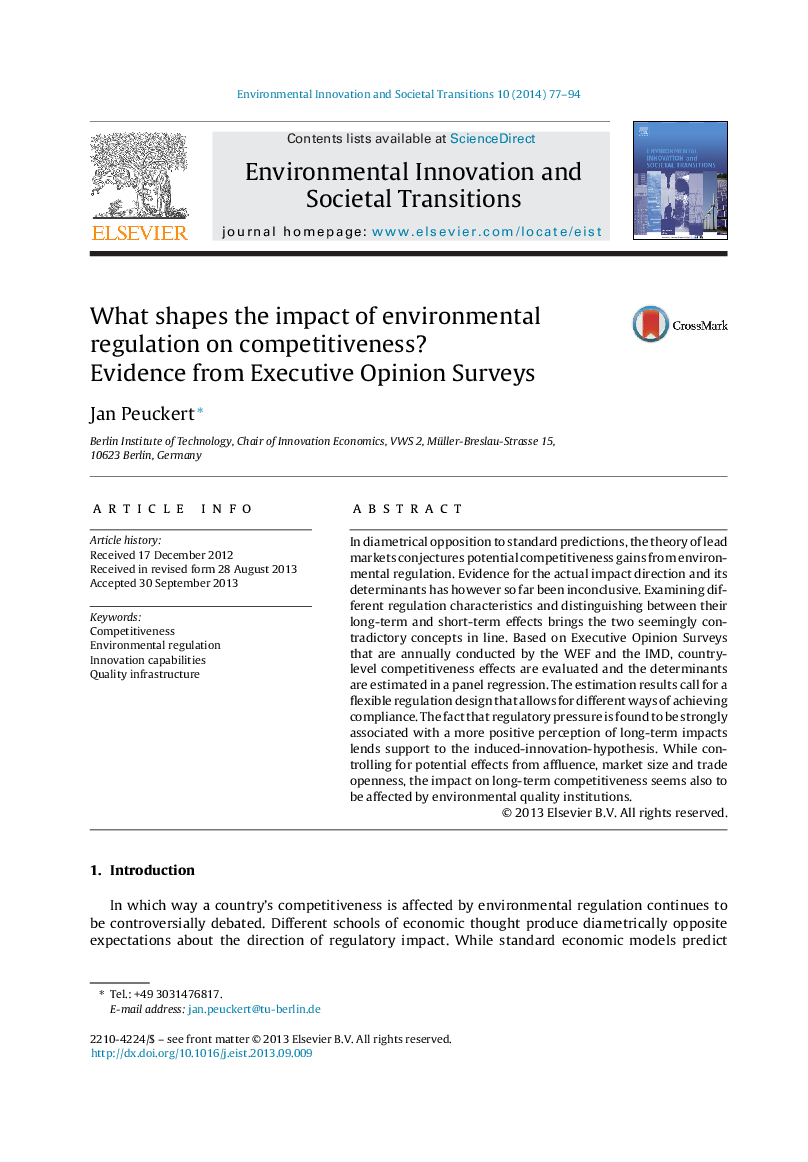| Article ID | Journal | Published Year | Pages | File Type |
|---|---|---|---|---|
| 6559589 | Environmental Innovation and Societal Transitions | 2014 | 18 Pages |
Abstract
In diametrical opposition to standard predictions, the theory of lead markets conjectures potential competitiveness gains from environmental regulation. Evidence for the actual impact direction and its determinants has however so far been inconclusive. Examining different regulation characteristics and distinguishing between their long-term and short-term effects brings the two seemingly contradictory concepts in line. Based on Executive Opinion Surveys that are annually conducted by the WEF and the IMD, country-level competitiveness effects are evaluated and the determinants are estimated in a panel regression. The estimation results call for a flexible regulation design that allows for different ways of achieving compliance. The fact that regulatory pressure is found to be strongly associated with a more positive perception of long-term impacts lends support to the induced-innovation-hypothesis. While controlling for potential effects from affluence, market size and trade openness, the impact on long-term competitiveness seems also to be affected by environmental quality institutions.
Related Topics
Life Sciences
Environmental Science
Management, Monitoring, Policy and Law
Authors
Jan Peuckert,
